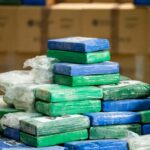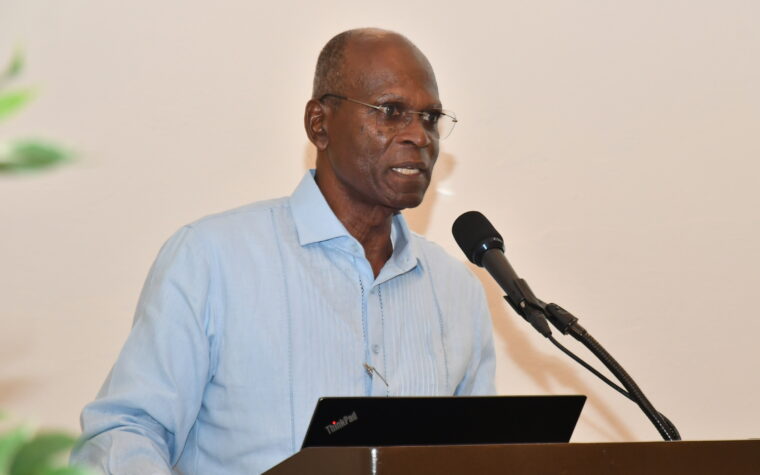( Barbados Today) Director of the Anti-Corruption and Anti-Terrorism Agency and former Commissioner of Police Darwin Dottin is criticising law enforcement agencies in Barbados and other Caribbean countries for not sharing the degree of illicit behaviour at ports of entry with the public.
Dottin said the public had a right to know the extent of illegal activity that occurs at local and regional ports and urged the relevant authorities to share what they know.
He was the featured speaker at a secure cargo clearance seminar held at the Savannah Beach Club and Spa, on Wednesday, hosted by the Barbados Customs Brokers and Clerks Association.
“I would like to issue a mild reproof to some of our regional agencies and say that they need to do more to ventilate what they know about ports around the region. For example, the association that I once headed – the Association of Caribbean Commissioners of Police – meets twice a year . . . yet we hear very little from them about particular issues.
“The Caribbean Customs Law Enforcement Council (CCLEC), I don’t hear anything; people from around the region don’t hear anything from CCLEC . . . but I think that we need assessments from these regional bodies so that citizens can be informed of the difficulties or issues that we have in our region,” Dottin said.
The former top cop added that gun crime was prevalent in Barbados and other regional states and more attention needed to be paid to reducing the distribution of firearms within the community by intercepting these weapons when they are imported.
“We are acutely aware of the problem of gun crime in our country. Many of our murders are enabled by guns. For example . . . [there were] 64 per cent in 2018, 62 per cent in 2019, 63 per cent in 2020, 53 per cent in 2021 and 77 per cent in 2022. The illicit importation of guns is a primary factor. They have negative impacts on public safety and citizen security.
“As to a reduction strategy, we must avoid single solutions to a problem that consists of many variables. In my opinion, a strategy that addresses the supply and demand issues is more likely to produce desired results. On the supply side, efforts are needed to be directed to choke off importation of guns, and on the demand side, you need policy interventions to understand and reduce the demand. These two strands should be addressed concurrently,” Dottin said.
He contended that too much attention was focused on the backend of illicit arms trade.
“Often, offers for assistance by external agencies and some governments, though well-meaning, address the problem downstream; that is when the guns are already in the country and in the hands of criminals . . . . It makes sense that you prevent their entry into the country so all your efforts need to be directed in that area,” he said.
The director of the Anti-Corruption and Anti-Terrorism Agency said ports were critical security spaces and it was also important that the labour force was properly vetted and always had the requisite clearance to carry out their duties and access certain designated areas.
He added that while it was imperative for brokers and other stakeholders involved in the importation of goods to achieve acceptable container turnaround time, they also had a duty to the wider public and national security to ensure they and their clients engaged in upright practices.










